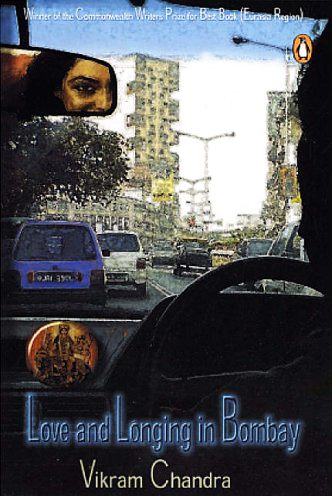Love and Longing in Bombay: Stories
Vikram Chandra
Chandra, Vikram;
Love and Longing in Bombay: Stories
Penguin Books, 1997, 288 pages
ISBN 0140265724, 9780140265729
topics: | fiction-short | india | crime
One of my top books by any author. The stories are tight, psychologically gripping, intense. Set in Mumbai, the titles are Sanskrit words that have complex connotations in the Indian psyche.
Five novella-length stories: - ''Artha'' (wealth) - ''Kama'' (desire, pleasure, love) - ''Dharma'' (faith, righteousness) - ''Shakti'' (strength) - ''Shanti'' (peace)
Excerpts: Dharma
On the day that Major General Jago Antia turned fifty, his missing leg began to ache. He had been told by the doctors about phantom pain, but the leg had been gone for twenty years without a twinge, and so when he felt a twisting ache two inches under his plastic knee, ht stumbled not out of agony but surprise. It was only a stumble, but the officers who surrounded him turned away out of sympathy, because he was Jago Antia, and he never stumbled. The younger lieutenants flushed with emotion, because they knew for certain that Jago Antia was invincible, and this little lapse, and the way he recovered himself, how he came back to his ramrod straightness, this reminded them of the metallic density of his discipline, which you could see in his grey eyes.
He was famous for his stare, for the cold blackness of his anger; for his tactical skill, and his ability to read ground, his whole career from the gold medal at Kharakvasla to the combat and medals in Leh and NEFA. He was famous for all this, but the leg was the centre of the legend, and there was something terrible about it, about the story, and so it was never talked about. He drove himself across jungle terrain and shamed men twenty years younger, and it was as if the leg had never been lost. This is why his politeness, his fastidiousness, the delicate way he handled his fork and knife, his slow smile, all these Jago quirks were imitated by even the cadets at the Academy: they wished for his certainty, and believed that his loneliness was the mark of his genius.
Shashi Tharoor review
conjures up an India of glittering Bombay sophisticates, gritty policemen, high finance and low crime, exclusive clubs and arty parties -- and nowhere more delightfully than in ''Shakti,'' a divertissement about two feuding Bombay society ladies. - New York Times review by Shashi Tharoor
amitabha mukerjee (mukerjee [at-symbol] gmail.com) 2010 Sep 25
